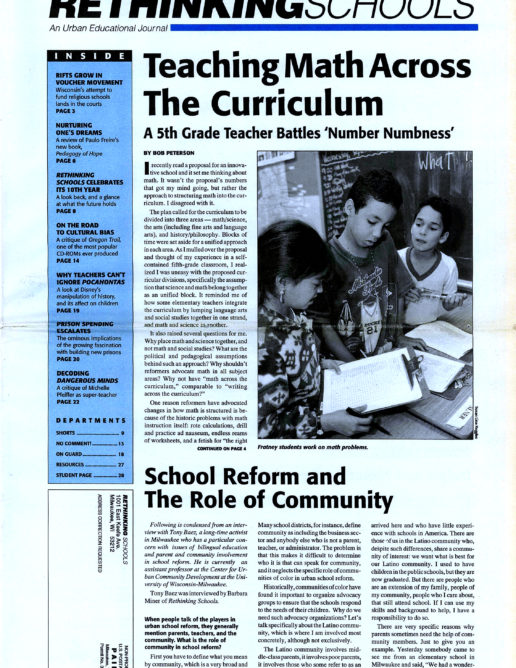Preview of Article:
Rifts Grow in Voucher Movement
WIsconsin Case Lands in the Courts but Controversy Escalates
Tension is mounting as Wisconsin’s voucher program for religious schools goes to court and the leading Black legislator associated with the program criticizes the business community’s goal of an unrestricted voucher program.

